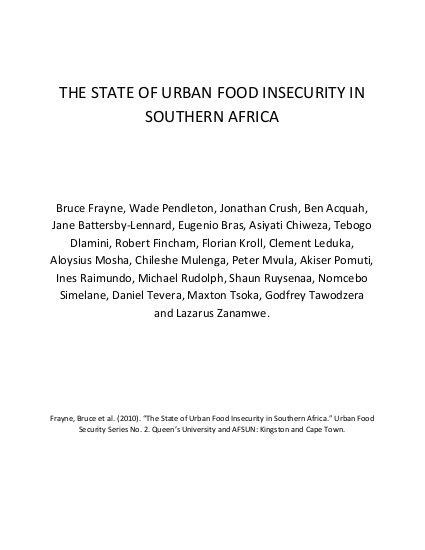Urban Food Security Series | #2

This is part of a series of policy and research papers designed to raise the profile of the urban food security issue in Africa by presenting new research findings and policy recommendations.
In order to provide baseline information on the state of urban food insecurity in Southern Africa, AFSUN planned and implemented an eleven city survey in eight SADC countries in 2008-9. The resultant regional data base is a rich source of information for evidence-based policy-making on food security. This paper begins with an overview of the growing importance of urbanization in Southern Africa. It then discusses the methodology used in the AFSUN Survey. Basic demographic information on the urban poor follows. Then the paper presents and discusses the survey findings, focusing on the following questions:
- What are the levels of food insecurity amongst poor urban households?
- What is the relationship between poverty and food insecurity?
- Where do the urban poor get their food?
- What factors influence urban household food insecurity?
The analysis focuses on the picture that emerges from the regional database but also highlights important differences between participating cities.
Finally, the paper examines the SADC policy environment from an urban food security perspective, and highlights various policy implications that arise from the research.
Links
Resource collections
- UN Habitat - Urban Response Collection
- Urban Response - Urban Crisis Preparedness and Risk Reduction
- Urban Response Collection - Community Engagement and Social Cohesion
- Urban Response Collection - Economic Recovery
- Urban Response Collection - Environment and Climate Change
- Urban Response Collection - Housing, Land and Property
- Urban Response Collection - Urban Crisis Response, Recovery and Reconstruction
- Urban Response Collection - Urban Resilience